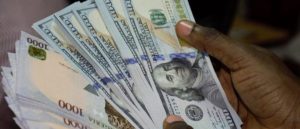
WHAT DOES CBN BAN ON FOREIGN EXCHANGE MEAN TO THE ECONOMY ?
The CBN sporadic ban of foreign exchange with Bureau De Change operators (BDCs) with the MPR (monetary policy rate) rate being constant has raised several eyebrows. The central bank governor of Nigeria stated this during the monetary policy meeting on Wednesday 27th July 2021, Thus what are the economic impacts of this action induced.
ECONOMIC EFFECTS OF BAN ON FOREX
- Reduction in the supply of foreign currency; Although Bureau de change operators are not the only vendors for forex, it still will indefinitely reduce the amount of forex in circulation. The BDCs are the major suppliers of foreign currencies to individuals and small businesses because of the ambiguous processes of the commercial banks.
- Spirals the already high Unemployment Rate; The halt on the issuance of new license will ultimately limit the potential employability of labor. With the current exchange being 32.5, Even the current Bureau De Change operators as of today are already short of business services and transactions causing an impasse in maintaining payroll and employability of fresh labor.
- Balance of trade: When a country’s trade account does not net to zero that is, when exports are not equal to imports there is relatively more supply or demand for a country’s currency, which influences the price of that currency on the world market. Nigeria’s export stood at 52 trillion nairawhile imports amounted to 19.9 trillion naira. The value of total imports increased by 17.3 percent to 19.89 trillion naira in 2020.
- Depreciation of Naira: The resulting ban could also result in the depreciation of naira over time. in june The Central Bank of Nigeria (CBN) recently devalued the Naira by seven percent against the dollar, in a bid to migrate towards a single exchange rate system for the local currency. because of the fluctuating rate in the foreign exchange market, thus is streaming a plethora of rates across operators.









